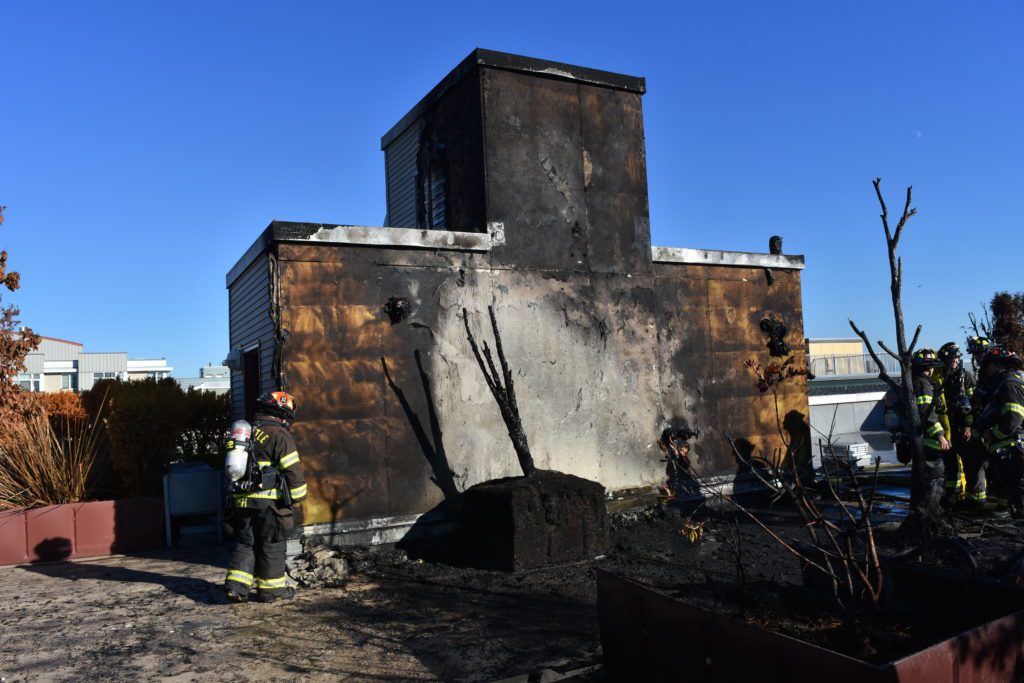
Every spring and summer as the weather warms up and building rooftops amenities get more use, we see an increase in the number of rooftop building fires.
Between September 2017 and September 2018, the Seattle Fire Department responded to 8 significant rooftop amenity fires. The total estimated loss for these fires was $468,000. The most common cause of these fires was improperly discarded smoking materials.

Even when smoking is not allowed on rooftops, Fire Investigators frequently find cigarette butts in planter boxes and in garbage cans. It is important to never discard cigarettes in vegetation such as mulch, potted plants or landscaping, peat moss, dried grasses, leaves or other things that could ignite easily. A small cigarette butt in dry conditions can turn into a major fire.
Grilling on Rooftops
July is the peak month for grill fires which are another common rooftop fire issue during the summer months. The leading ignition factors in grill fires are mechanical failure or malfunction, combustibles placed too close to the heat, and cooking left on the grill unattended.

If your rooftop has cooking grills available, make sure you know the following:
Setting up:
- Barbecue grills are designed for outdoor use only. Never barbecue in an enclosed area – dangerous carbon monoxide (CO) can accumulate and be deadly. If you suspect CO poisoning, call 911.
- Set-up your grill in an open area at least 10 feet away from buildings, overhead combustible surfaces, dry leaves and brush.
- Make sure all of the grilling parts are firmly in place and the grill is on a flat surface.
- The Seattle Fire Department recommends the use of one-pound propane cylinders as the least hazardous fuel source for outdoor grills.
- For propane grills, make sure the hose connection is tight and check the hoses for leaks.
During use:
- Never leave grills unattended while cooking.
- Keep a three-foot zone around the grill where children and pets aren’t allowed.
- Do not leave starter fluid, lighters or matches within the reach of children.
- Use the proper tools. Long handled barbecue utensils and flame retardant mitts will prevent burns from heat and flame.
- For charcoal grills, avoid adding lighter fluid after the coals are lit.
Cleaning up:
- For propane grills, turn the grill and fuel cylinder off immediately after grilling.
For charcoal grills, allow coals to cool for 48 hours before disposing. If you are not able to wait, douse coals with plenty of water, and stir them to ensure that the fire is out.